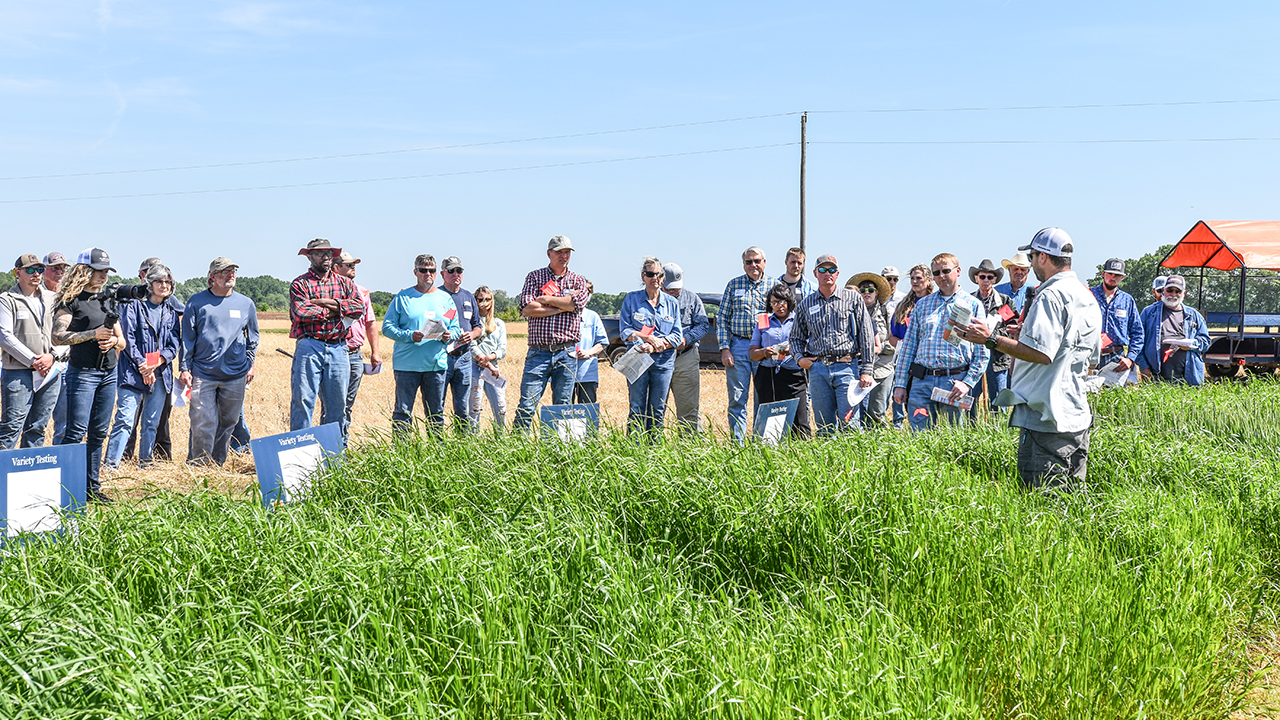Auburn University
Variety Testing Program

Variety selection is the most important decision a farmer can make. If farmers want to be successful, they must ensure that they plant varieties that are well adapted. If a farmer selects the wrong variety, the results can be catastrophic. Typically, farmers do not have the resources to conduct variety trials in addition to their normal growing season activities.
Variety evaluation is also critical to plant breeders, both from universities and industry. Prior to releasing a new variety, these breeders typically evaluate their lines in independent variety trials. This ensures that they have unbiased data from multiple years and locations to support the release of their new variety.
The mission of the Auburn University Variety Testing Program is to provide research-based, unbiased results on the performance of various crop hybrids, cultivars, and varieties to the agricultural community in Alabama. We are intent on conducting these trials in a manner that will result in maximum biological yield through methods common to the top-producing farms in Alabama.
We are committed to providing this information in a timely manner for its use during the decision-making process. The success of the program rests on our ability to help Alabama producers provide a safe, dependable source of food and fiber for all families as well as an economic sustainability for theirs.

Henry Jordan
Variety Testing Manager, Research Associate IV
Subscribe to AU Variety Testing Updates
Annually, the Auburn University Variety Testing Program conducts trials on corn, cotton, soybeans, peanuts, grain sorghum, wheat, barley, oats, triticale, small grain forages, and ryegrass.
Trials are conducted on Auburn University owned and operated agricultural research stations across the major geographical regions of the state. The research conducted at each of these locations can provide stakeholders with data that can be more representative of their growing conditions.
Experiments with cotton : varieties, boll rot, wilt, phosphates 1911
J. F. DUGGAR, Director,ANDE. F. CAUTHEN, Farm Superintendent and Recorder. Of the many varieties of cotton tested in plots in 1910, Cook, Dillon, Hardin and Triumph made the largest yields; of those tested in observation rows, Bate Early Victor, New Triumph, Excelsior...
Tests of varieties of cotton in 1909
J. F. DUGGAR AND E. F. CAUTHEN. In 1909 thirty varieties of cotton were tested on plots on the Experiment Station Farm at Auburn. The cotton was left one plant in a hill in checks 3 1-2 by 3 1-2 feet. The fertilizer per acre consisted of 240 pounds acid phosphate, 120...
Experiments with oats 1906
J. F. DUGGAR. Experiments extending over a period of ten years are -summarized in this bulletin. The oat may be made a much more profitable crop in Alabama than it now is, provided farmers will make the two following innovations in the usual method of caring for the...
Variety tests with cotton and corn : Williamson method of corn culture 1906
BY J. F. DUGGAR, DIRECTOR AND AGRICULTURISTANDL. N. DUNCAN, ASSISTANT IN AGRICULTURE In order that the results of our unpublished variety tests of cotton may be in the hands of farmers in ample time for use in making plans for another year, this brief bulletin...
Tests of varieties of cotton in 1904
BY J. F. DUGGAR.The season of 1904 presented some trying conditions for the cotton plant. The rainfall for March was below normal. April was exceedingly dry and the drought was not broken until late in May. The total rainfall for March-was 2.80 inches; for April 1.02...
Corn culture 1900
BY J. P. DUGGAR.SUMMARY.During the last five years thirty-six varieties of corn have been tested from one to five years. In no two ofthese five years did the same variety stand at the head of the list. Of the varieties tested five years, Mosby made the highest...
